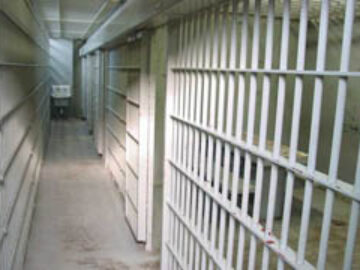In reality 10 political prisoners remain in Belarus

In reality, there are 1o more political prisoners left in Belarus.”Restriction of freedom” for persons on trial at “the Process of Fourteen” is a very strict measure of restrain. On August 20 due to pressure of the Belarusian opposition and international community political prisoners Syarhei Parsyukevich and Andrei Kim were released. Despite of the fact that accusations had been obviously falsified, and verdicts were unjust, like in the case of Alyaksandr Kazulin, they were released by a presidential decree of pardon, not by a decision of judiciary establishments.
“It means that I was arrested with an outrageous wording, and I was released with the same outrageous, totally illegal wording,” Andrei Kim has commented on his release. Other released political prisoners do not yield to euphoria over their release as well. They view it as an element of political bargaining, and not as an indication of liberalization.
Paval Kuryanovich, who has served 15 days of arrest on falsified petty hooliganism charges, is to be released from Minsk prison in Akrestsin Street August 22. After that there would be no political prisoners left in Belarus for the first time since 2002. However, it’s too early to close the chapter of the institution of political prisoners in Belarus.
In reality, there are 10 more (!) political prisoners left. “Restriction of freedom “, the measure of restraint to the activists in the “Process of Fourteen”, is an extremely harsh punishment, in spite of what is generally deemed about it. And in Belarus, this punishment is particularly cynical. It is a suppression of civic rights. They cannot go abroad. Police officers have the right to demand information about the job of the sentenced, summon him or her to an “interview” or “educational conversations” at any time, to detain for 3-24 hours for no reason, enter the dwelling place of the sentenced any time of the day, and visit him or her at work.
The accused are obliged to come to the police up to four times per month; they have no right to change the dwelling place or leave the city or town without authorization of the police. The accused people must spend their leisure time inside their houses; they are not allowed to walk further than a certain distance defined by the police. They must stay at home from 7 p.m. till 6 a.m. The police can decide that the accused must carry a digital control device. As a matter of fact, this form of punishment is equal to an arrest, though a house arrest. The accused people can be either at home or at their working place. They cannot leave without authorization even to a store.
Certainly, any public activity or even personal freedom cannot be even discussed here. Minimal violations of this regime – for example, coming late home from work – brings administrative penalty up to 15 days of imprisonment in a penalty isolation cell. Three such violations bring to imprisonment up to three years in addition to the punishment which has already been served (Article 415 of the Criminal Code of Belarus). It goes without saying that administrative punishments in Belarus have become absolutely arbitrary recently.
Thus, Artur Finkevich who had already passed two years of freedom restriction for political graffiti, in December, 2007 was sentenced to 1.5 year imprisonment additionally for minor violations. In this situation, the accused person has no rights and depends entirely on the authorities’ will and the mood of supervising policemen.
We could hope that the long period of Belarus’ history with a great number of political prisoners is over only when the sentences to the figurants of the “Process of Fourteen” would be quashed, and the practice to cram prisons with oppositionists in the run-up to important political events would come to an end.
Note:
In the “Process of Fourteen” 14 opposition activists were involved in the case on participation in protest actions of entrepreneurs on January 10. Youth activist Andrei Kim is sentenced to one and a half year in penal colony by the Central district court of Minsk. Other participants of the “Process of Fourteen” – Alyaksei Bondar, Artsyom Dubski, Mikhal Kryvau, Mikhal Pashkevich, Ales Straltsou, Ales Charnyshou, Tatsyana Tsishkevich were sentenced to correctional labour without sending them to penitentiary institutions. Anton Koipish and Uladzimir Syarheeu are fined of 100 basic units. The judgement was read by Alena Illina.
On May 27 the court of the Tsentralny district of Minsk sentenced Mikhas Subach and Paval Vinahradau to two years of restraint of liberty without sending them to penitentiary institutions. One more figure in the trial of 14 minor Maksim Dashuk got 1 ½ years of restraint of liberty. The judgement was given by Valery Yesman.
